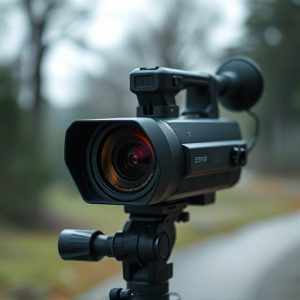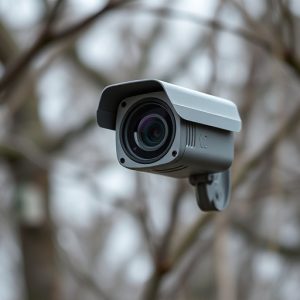Unveiling Hidden Cameras: Detecting Battery Operated Signals for Parental Peace of Mind
Battery-operated hidden childcare cameras provide parental surveillance but require careful navigati…….
Battery-operated hidden childcare cameras provide parental surveillance but require careful navigation of privacy concerns. Parents must research camera features like streaming and recording, ensuring legal compliance to protect their child's privacy. Detection methods include specialized signal detectors for unique emissions and monitoring power usage anomalies. Responsible deployment involves adhering to laws, open communication, and respecting digital rights to maintain a safe and trustworthy environment.
Hidden monitoring devices, particularly battery-operated childcare cameras, have become a topic of interest for parents seeking peace of mind. In this article, we explore the art of detecting these discreet signals, offering valuable insights from a parent’s perspective. From understanding the technology to mastering practical tips for detection, we navigate the world of hidden cameras. Additionally, we delve into ethical considerations and legal aspects, ensuring readers are empowered with knowledge while prioritizing safety.
- Understanding Battery-Operated Hidden Cameras: A Parent's Perspective
- Detecting Signal from Discreet Devices: Practical Tips
- Ensuring Safety: Ethical Considerations and Legal Aspects of Monitoring
Understanding Battery-Operated Hidden Cameras: A Parent's Perspective
Hidden monitoring devices, particularly battery-operated childcare cameras, have become a popular tool for parents seeking peace of mind when leaving their children in the care of others. As a parent, understanding how these devices work and what to look out for is essential to ensuring your child’s safety and privacy. These small yet powerful tools are designed to be discreet, often resembling everyday objects like toys or fire detectors, making them an attractive option for monitoring childcare settings.
When considering battery-operated hidden cameras, parents should familiarize themselves with the various types available on the market. Some models offer real-time video streaming via smartphone apps, allowing parents to remotely monitor their child’s environment. Others record footage that can be reviewed later. It’s crucial to review features like resolution, field of view, and battery life to make an informed decision. Additionally, ensuring the camera complies with local privacy laws and regulations is vital to protect your child’s rights and maintain a safe, legal monitoring system.
Detecting Signal from Discreet Devices: Practical Tips
Detecting signals from discreet devices like Battery Operated Hidden Childcare Cameras requires a combination of technical know-how and keen observation. First, understand that these cameras are designed to be invisible, so they often operate on low power modes or use RF (radio frequency) transmission methods that aren’t easily detectable by traditional means. One practical tip is to invest in a signal detector specifically designed for such devices. These detectors can pick up on the unique signals these cameras emit, even if they’re not broadcasting visibly.
Another effective strategy is to monitor for irregular power usage or sudden spikes in energy consumption. Battery-operated cameras might show unusual activity when they wake up to transmit footage, so keeping an eye on electricity usage patterns can be a red flag. Additionally, familiarize yourself with common frequencies and protocols used by hidden cameras. Many operate on specific channels or use particular encryption methods, so learning these details can help you narrow down potential signals. Regularly scan the environment with your signal detector and stay vigilant for any unfamiliar readings.
Ensuring Safety: Ethical Considerations and Legal Aspects of Monitoring
Ensuring safety through hidden monitoring devices, particularly battery-operated childcare cameras, requires a nuanced balance between security and ethical considerations. While these tools can provide peace of mind for parents and guardians, it’s essential to respect privacy rights and adhere to legal frameworks. Using such devices in homes or childcare settings must be done responsibly, with explicit consent from all involved parties, especially when children are present.
Legal aspects vary by region, but generally, hidden cameras should not infringe upon reasonable expectations of privacy. Open communication about the presence of monitoring devices is crucial. Parents using battery-operated hidden childcare cameras must ensure their use aligns with local laws and respect the evolving digital rights of individuals, fostering an environment where safety and trust coexist harmoniously.
In today’s digital age, parents seeking peace of mind regarding their childcare arrangements can benefit from understanding how to detect battery-operated hidden childcare cameras. While these devices offer a sense of security, ethical considerations and legal aspects must be navigated carefully. By arming themselves with practical tips for signal detection, parents can ensure both the safety of their children and respect for privacy rights. Staying informed about these hidden monitoring device signal detection techniques is key to making informed decisions regarding family safety.


